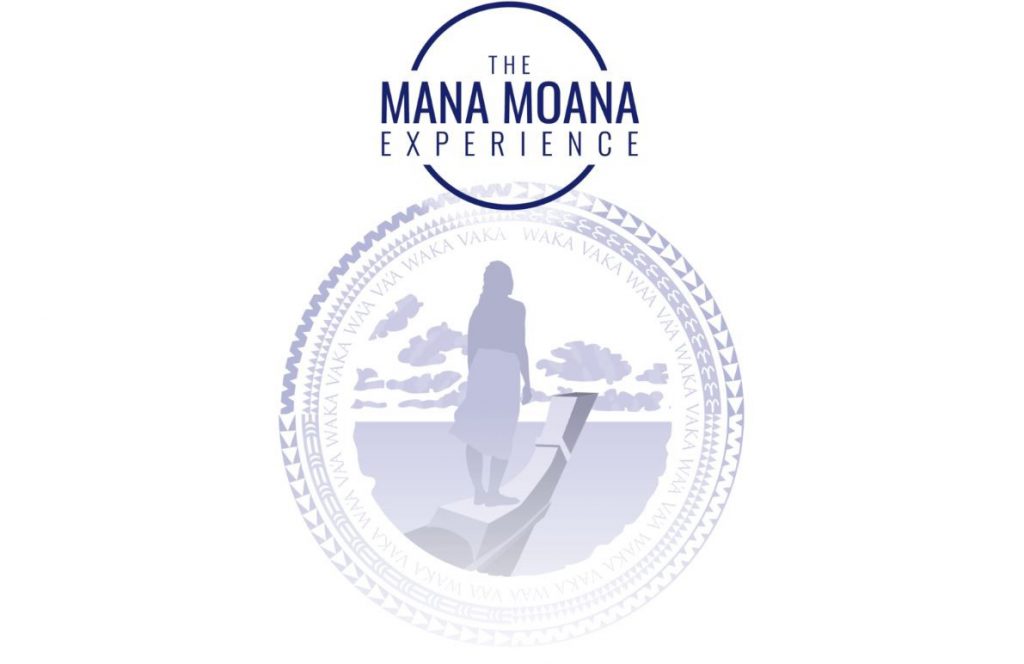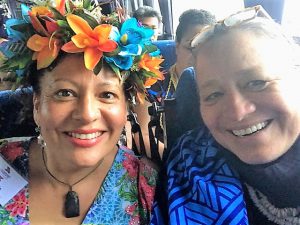
Dr. Manulani Aluli-Meyer, UH West Oʻahu’s Konohiki of Kūlana o Kapolei, traveled to Aotearoa in early March to provide a Native Hawaiian world-view on indigenous knowledge, values, culture, and outlook during a keynote address and talk presented to mid-career Pasifika leaders of New Zealand.
Aluli-Meyer was invited to address the Leadership New Zealand’s Mana Moana Experience, an eight-month course aimed at improving the leadership abilities of mid-career New Zealand leaders who have a Pacific Island heritage (i.e., Samoan, Tongan, Tahitian, etc.). The program attempts to recall and harness indigenous wisdom and culture to develop effective leaders and culturally competent leaders.

Dr. Karlo Mila (l) and Dr. Manulani Aluli-Meyer
Aluli-Meyer brought a Native Hawaiian perspective to the program, which consists of a series of six retreats, beginning with a three-day retreat in the Waitakere village north of Auckland. The program draws on the postdoctoral research of Dr. Karlo Mila, a Fulbright Scholar and poet who examined culture, identities and well being among New Zealand’s Pasifika population.
According to Mila’s research, more than 70 indigenous words are shared in at least 15 Pacific languages, with proverbs in multiple languages and intersecting mythological stories, metaphors, archetypes, values and wisdom shared as well. “Mana” is one such Oceanic word found in 26 languages referring to power, energy, abundance, authority, miracles, while “Moana” is a Polynesian word for ocean.
“Mana Moana, then, is about the power, energy, vitality sourced to being from the moana and indigenous to the South Pacific region and connected to that unique cultural legacy of knowing and being,” according to Leadership New Zealand.
The organization said a critical feature of the program involves exploring ancestral and cultural knowledge so that it informs exceptional leadership in contemporary contexts.
Aluli-Meyer’s own work has touched upon the power of indigenous knowledge, including work in New Zealand where she was the lead teacher/designer for a Masters in Applied Indigenous Knowledge degree at a Māori university, Te Wānaga o Aotearoa. In recent months Aluli-Meyer organized events at UH West Oʻahu examining the relevance of Native Hawaiian knowledge and culture, including a day-long presentation of research projects examining how land-based practices, environmental stewardship, and access to local food are essential to Native Hawaiian health and wellness, as well ʻAha ʻĀina Aloha, a colloquium for the discussion of land-based relationships.
